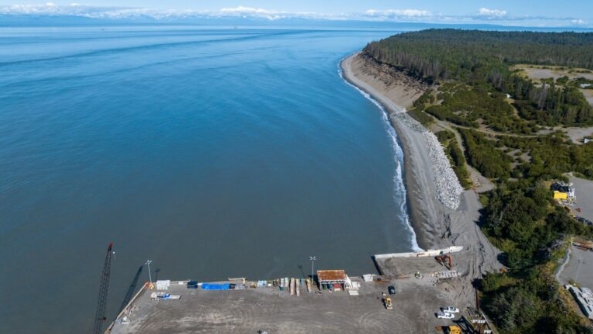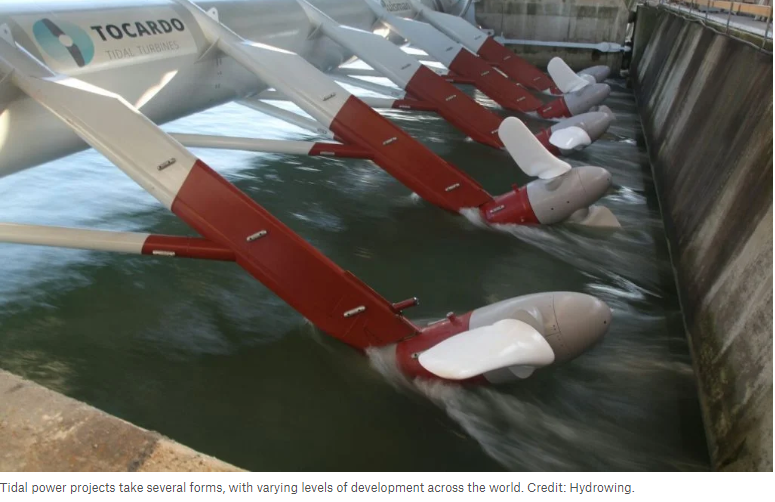Nova Scotia Power, the owner of the Annapolis Tidal Generating Station, has decided to retire the 37-year-old power plant following a failure related to its electrical system.
 The Annapolis Tidal Generating Station (Courtesy of Tethys)
The Annapolis Tidal Generating Station (Courtesy of Tethys)
The Annapolis station was the first tidal plant in North America, and at the time of its commissioning in 1984, one of only three tidal power plants in the world.
Located in the Bay of Fundy and Annapolis River, in Canada’s Nova Scotia Province, the plant features a single effect 7.6-metre diameter horizontal axis Straflow turbine designed to generate power during discharge from the reservoir into the sea.
It has a capacity of 20MW and a daily output of roughly 80-100MWh, depending on the tides.
In 2018, due to decreasing generation and increasing sustaining capital costs at the Annapolis Tidal Generating Station, Nova Scotia Power began a review process to determine whether continued investment in the station was in the best interest of customers.
While the review was underway, a crucial component of the station failed on 15 January 2019, causing the power plant to cease generation.
In addition to the failure, a notice was issued by Fisheries and Oceans Canada on 1 April 2019 stating that continued operation of the generating station would require authorization under the Fisheries Act.
As a result of the review and analysis, it was determined that further investment to run the Annapolis Tidal Generating Station was not the lowest cost option and not in the best interests of customers, according to Nova Scotia Power.
Following the decision to retire the Annapolis power plant, Nova Scotia Power has filed an application to the Nova Scotia Utility and Review Board (UARB) seeking the approval of a ten-year (2021-2030) amortization period to the retirement of the assets that includes the C$25.8 million current value of the plant.
“We have filed an application with the UARB, requesting approval for the accounting treatment of the facility in terms of recovering the remaining value of the plant given the decision to retire the facility. This is the lowest cost option and in the best interest of our customers. We remain committed to producing renewable energy that is reliable and affordable for our customers”, Nova Scotia Power said in a statement.
The proposed amortization amount over a ten-year period would be C$2.8 million per year, according to the application, and would come from the ratepayers’ pockets, CBC reports.
“Allowing NS Power to amortize the unrecovered capital investment over a ten-year period reduces the cost pressures associated with the decision to retire the Annapolis station in the best interest of customers. In future years, the reduced amortization expense will reduce upward rate pressure and promote rate stability for Nova Scotia Power’s customers”, Nova Scotia Power said in the application to UARB.
The application to the UARB was filed on 19 February 2021, and the decision will be made following the ongoing review.
This article is reproduced at www.offshore-energy.biz







